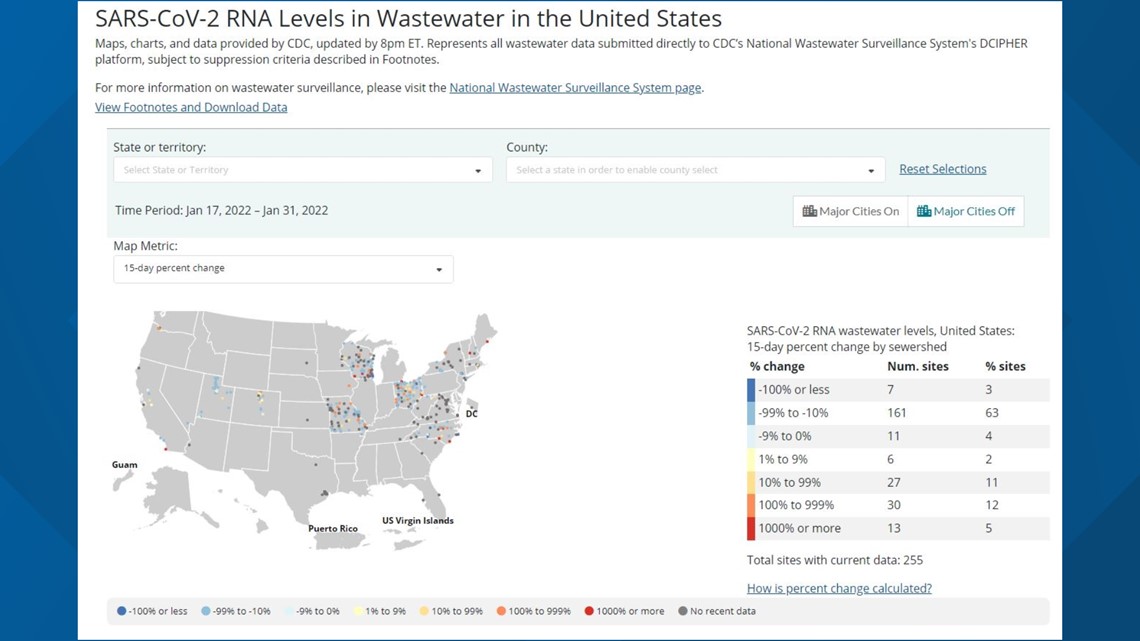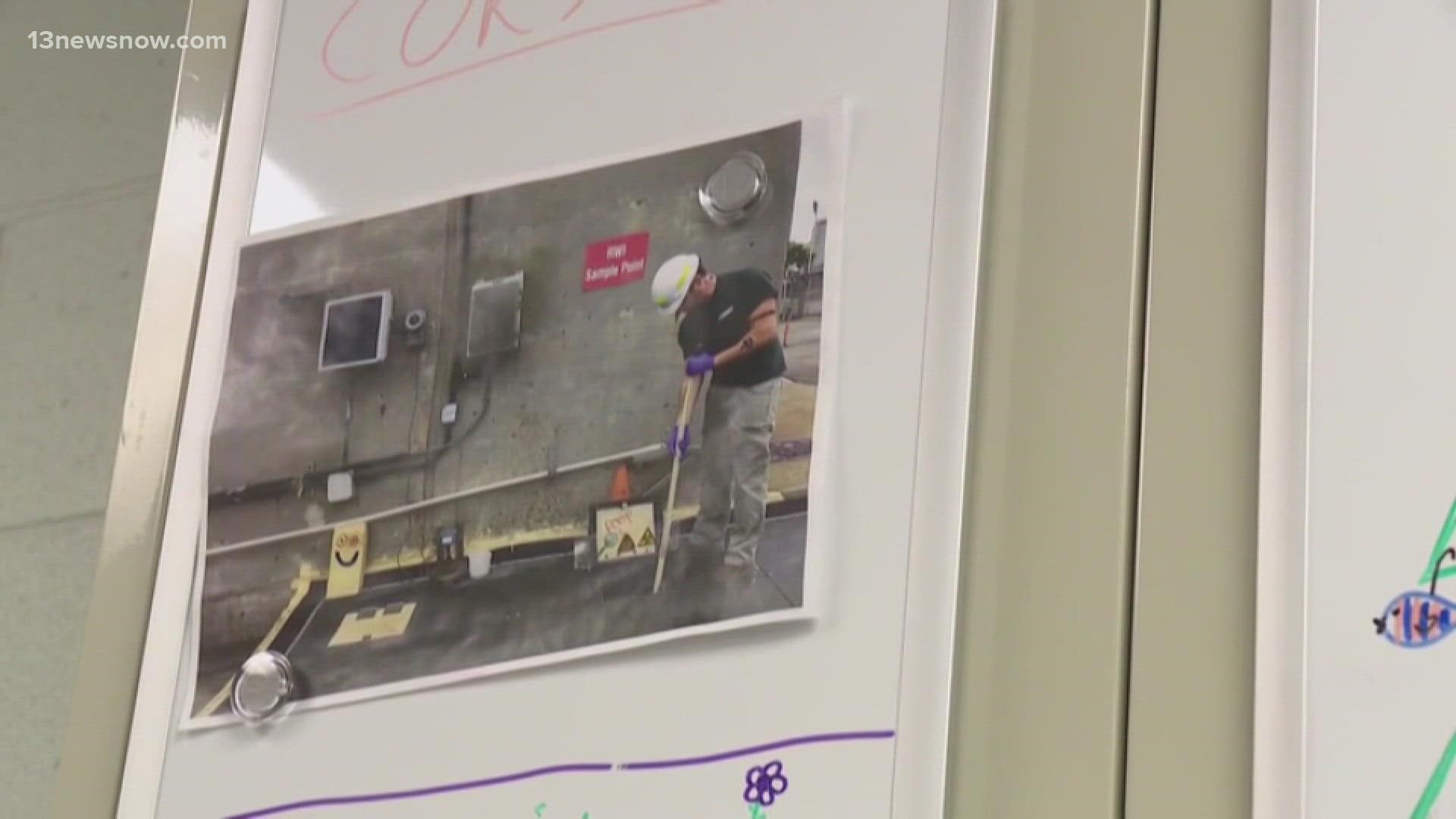VIRGINIA, USA — There's another way to track COVID-19 trends across the country. Scientists have been testing wastewater for COVID since the pandemic began.
On Friday, the Centers for Disease Control and Prevention (CDC) launched a dashboard people can use to keep up with their findings.
Right now, the CDC tool tracks COVID-19 trends in wastewater from more than a dozen states, including Virginia.
Dr. Amy Kirby, program lead for the CDC's national wastewater surveillance system, said she expects more states to join the efforts, eventually.
Scientists check for signs of COVID-19 left behind when people use the restroom. The CDC tracker shows changes over the course of a 15-day period.


"We have never missed a week," said Kyle Curtis, a scientist with the Hampton Roads Sanitation District (HRSD).
A team of HRSD scientists has been tracking COVID-19 in wastewater since March 2020. They test nine sites across the area, every week, and share what they find with the Virginia Department of Health, which then shares information with the CDC.
A VDH spokesperson confirmed it is sharing findings with the CDC from 25 sites across the Commonwealth, including five in Hampton Roads.
The CDC provided funding to the VDH to study wastewater through July 2022.
RELATED: Our bodies shed COVID-19 virus days before we show symptoms. So, Virginia is testing wastewater
Curtis says wastewater surveillance should not replace clinical COVID testing.
"But it works as a really good complement," he said.
According to the CDC, wastewater testing can catch COVID spikes before data becomes available from people getting tested.
Curtis thinks this new dashboard, which allows people to see the results for themselves, can help boost trust in testing.
"Some people saying we shouldn't be as worried as we are, and some people saying we should be more worried about it. If you just want to see what's going on with infections and determine how worried I want to be, I think wastewater treatment is a good place for that," said Curtis.
Even if you can't get tested, people still have to use the bathroom, and Curtis said that makes wastewater testing a useful tool.
"Because with wastewater surveillance, you get everyone, anyone who contracts the virus will shed it in wastewater," he said.

